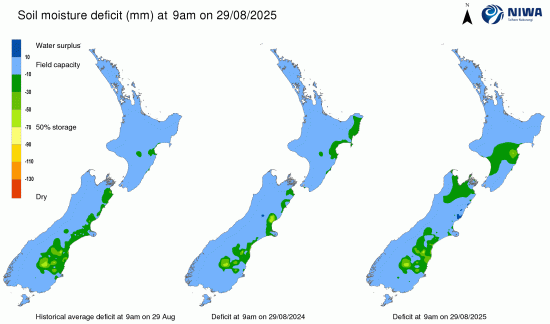Here’s our summary of key economic events overnight that affect New Zealand, with news bond markets are increasingly worried about what will transpire from the US CPI data for August later this week, and the US Fed’s reaction next week.
First today, American inflation expectations seem to be rising. In August they came in at 3.2%, their highest in three months. While that is higher than year ago levels too, some of the detail is a bit of a worry. Those surveyed say rents are expected to rise 6.0%, food by 5.5% and petrol by 3.9%. Also of some note is that job finding expectations have now fallen to a record low in a data series that started in June 2013. More than 14% of those surveyed say they are likely to lose their job in the year ahead. There is a palpable sense of fear and squeeze in these survey results. The fast-tightening labour market has many on edge.
Meanwhile, August data for American consumer debt shows it rising, up +3.8% from a year ago with revolving debt up a sharp +9.7% on the same basis. Debt levels at credit unions seem to be leading the rises. These are all three year highs and the sudden shift likely indicates rising debt stress.
The USD is falling, heading towards a three year low. Benchmark bond yields are falling and the UST 10 year is near a one year low.
Across the Pacific, Chinese exports grew by +4.4% in August from a year ago, a level many others would like to have but it is lower than the expected +5% and July’s +7.2% growth. And it is the softest pace of outbound shipment growth since February. Meanwhile their imports were up +1.3% in August on the same basis, less than the expected +3% and July’s +4.1% rise. But that meant that their trade balance swelled to +US$102 bln in August, better than the +US$99 expected and higher than July’s +US$91 bln.
While China’s exports and imports to the US eased back in August, they still ran a +US$24.3 bln monthly surplus with this strategic rival and that isn’t declining materially. It’s the largest surplus they run with anyone, although the combined nations of the EU ran a larger deficit with China at US$28.9 bln in August.
In Japan, Prime Minister Shigeru Ishiba resigned over the weekend and new candidates are lining up to replace him. Financial markets are buoyant there on the prospect that a new leaders may chase fiscal expansion.
And in France, their prime minister has lost a confidence vote.
In Germany, their exports came in slightly weaker than expected in August when a rise was anticipated. But it was still a good gain on a year ago, and helped them maintain a healthy trade surplus. Meanwhile German industrial production came in much better in July than expected, bouncing back from a weak June.
In Australia, a major court decision will impact hundreds of thousands of businesses. Their Federal Court has “concluded that the annual salary and set-off clause did not have the effect of relieving Woolworths and Coles of their record-keeping obligations and that clocking and rostering data were not sufficient to constitute records for the purposes of reg 3.33 and reg 3.34.” It gets ‘worse’. Apparently the law is written in a way so that these businesses have to prove that the accuser is wrong, rather than the accuser having to prove its case. It seems to render time-keeping records as ‘not sufficient’ but doesn’t actually say what is ‘sufficient’. Life is going to get “very interesting” for the large number of employers who have hired salaried employees – i.e. most. Some think it could cost those two large supermarkets up to AU$1 bln.
The UST 10yr yield is now under 4.05%, down -4 bps from yesterday at this time. The key 2-10 yield curve is flatter at +56 bps. Their 1-5 curve is now inverted by -6 bps. And their 3 mth-10yr curve is still inverted -12 bps. The China 10 year bond rate is holding at 1.78%. The Australian 10 year bond yield starts today at 4.28% and down -7 bps from yesterday. The NZ Government 10 year bond rate starts today at just under 4.38%, down -5 bps from yesterday.
Wall Street has started its week little-changed with the S&P500 up +0.1%. Overnight, European markets closded firmer, with Frankfurt and Paris up about +0.8% but London only managed +0.1%. Yesterday Tokyo rose +1.5%, Hong Kong was up +0.8, and Shanghai was up +0.4%. Singapore closed unchanged. The ASX200 ended its Monday session down -0.2%. But the NZX50 rose +0.4% on the day.
The price of gold will start today surging to a new high at US$3,633/oz, up +US$47 from yesterday.
American oil prices are a bit firmer, up less than +50 USc at just under US$62.50/bbl with the international Brent price also firmer just on US$66/bbl.
The Kiwi dollar is now at just over 59.3 USc and up +40 bps from yesterday. Against the Aussie we are up +20 bps at 91.1 AUc. Against the euro we are also up +20 bps at 50.5 euro cents. That all means our TWI-5 starts today at just under 66.7, up +30 bps from yesterday.
The bitcoin price starts today at US$112,282 and up 1.1% from this time yesterday. Volatility over the past 24 hours has been low at just under +/- 1.0%.
Select chart tabs
US$
AU$
TWI
¥en
¥uan
€uro
GBP
Bitcoin
The easiest place to stay up with event risk is by following our Economic Calendar here ».

